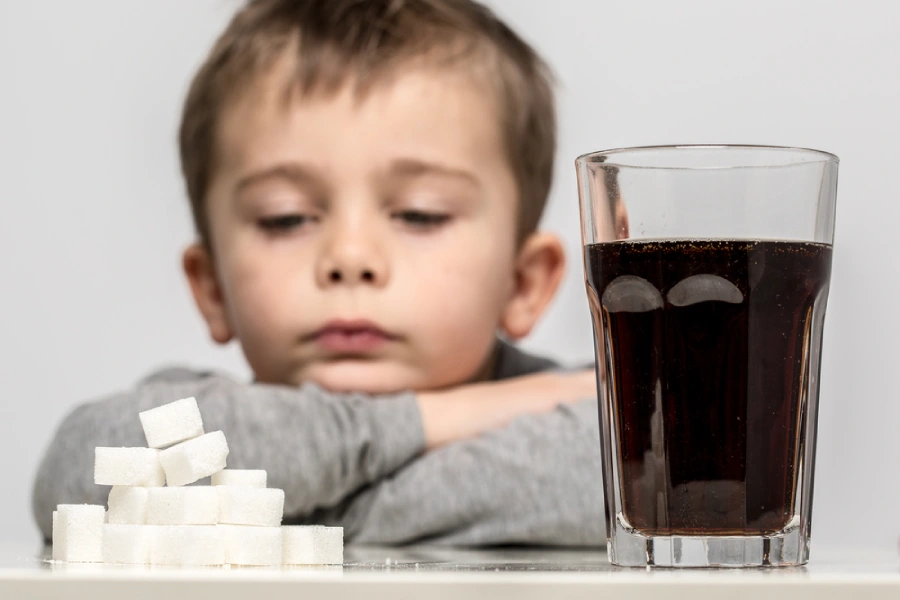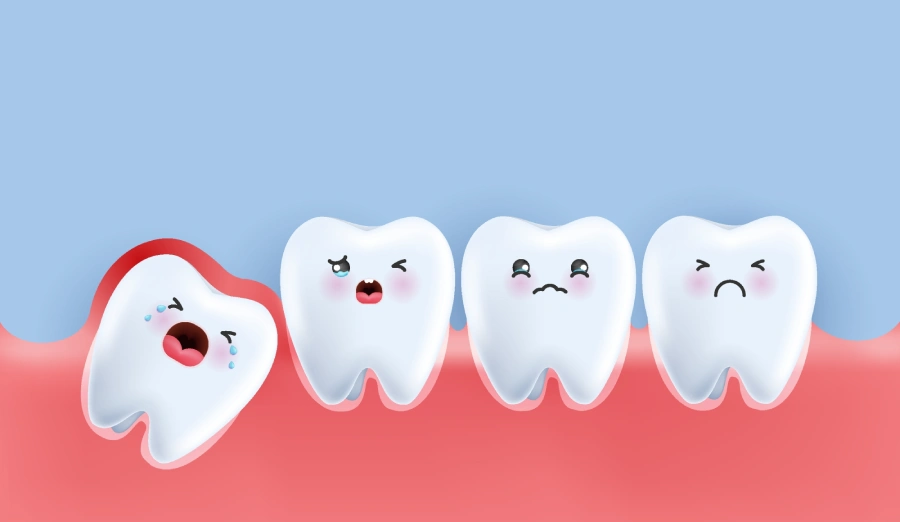Bleeding gums in toddlers is nothing to be overly alarmed about but it’s certainly not something you want to ignore. As Super Dentists, we pay attention to every little detail when it comes to your little one’s teeth but an often neglected area of the mouth is the gums.
If your toddler’s gums are bleeding it could be a sign of a more serious problem. There are many factors that can contribute to toddler gum bleeding, some are serious, while some are not.
In this guide, our goal is to help you understand why this is happening, how to prevent it, and how to stop it from happening in the future.
What Causes Bleeding Gums in Toddlers?
Take a look in your toddler’s mouth. Do their gums look swollen, or inflamed, and do they have pink-tainted saliva? If so, they might be experiencing gum bleeding without you even knowing it.
Here are some of the reasons your toddler’s gums are bleeding:
Plaque
No matter how much you brush your toddler’s teeth, they can still develop plaque. Plaque is a film that forms on your teeth due to sugary and starchy foods.
This can lead to gum bleeding because your toddler’s mouth bacteria will feed on these sugars and cause plaque. When the plaque hardens into tartar, it can start to irritate the gums causing blood whenever they’re brushed or further irritated.
Your toddler’s bleeding gums and bad breath are not something you want to ignore because tartar can eventually turn into gingivitis and more serious gum diseases.
Too Much Sugar
As mentioned, sugar turns into plaque which has a host of issues that come along with it. But, the sugar your child is ingesting might not always be so obvious. Did you know that some fruit juices can have as much sugar as a can of soda?
Drinks can cause a lot of plaque buildup because they sit in our mouth and graze across our teeth and for a developing toddler’s teeth, this is never a good thing. If your children’s gums are bleeding, you might want to take a look at their diet.
Dry Mouth
Toddlers can develop a dry mouth due to mouth breathing as a result of swollen tonsils or allergic reactions. Sometimes children with severe seasonal allergies will also breathe through their mouth more often than normal.
When this happens, the gums can become dry, cracked, and irritated. When you brush them, they bleed and cause further irritation. The best way to prevent this from happening is to make sure your child isn’t dealing with any allergies and pay attention to how they breathe. If it seems like they struggle to breathe through their nose, this might be something you’ll want to bring up.
Poor Quality Toothbrush
Keep in mind that not all toothbrushes are made for kids. It’s important that you check to make sure the toothbrush that you’re using isn’t causing bleeding gums for your toddler.
Make sure that the bristles of the toothbrush are not too hard and feel free to ask for a recommendation on toothbrushes or a free one from your Super Dentist.
Bad Oral Hygiene
In some cases, bad oral hygiene is the cause of your toddlers’ gums bleeding but don’t feel bad. Not everyone knows how to properly care for a child’s dental hygiene and you’re taking the right steps in fixing this problem.
Your child’s gums might be bleeding because of inflammation from their teeth not being brushed enough. This leads to an increase in plaque which leads to gum disease and tooth decay.
The best way to prevent it is with twice daily brushing, flossing, and careful dietary choices.
How To Prevent Bleeding Gums in Toddlers?
If your toddler’s gums are bleeding when brushing their teeth, you’ll want to do everything in your power to prevent this from happening in the future.
The best way to prevent toddler gum bleeding is by getting into the habit of brushing their teeth twice a day with a soft-bristled toothbrush. Make sure the toothbrush fits comfortably into their mouth and ensure they do not have any discomfort when you’re doing it.
Ideally, you want teeth brushing to be a happy time that they’re not scared or nervous to do. Brush after breakfast and before bedtime every day.
We also recommend that you brush after high-sugar or starchy foods.
Don’t avoid brushing your child’s gums either. A lot of parents think that if they’re bleeding it means you should avoid them. That’s not true.
Be gentle and brush their gums because it will remove the plaque that is causing the bleeding.
Can a 2-Year-Old Have Gum Disease?
Yes, believe it or not a two-year-old can have gum disease. Toddler gum bleeding from brushing teeth can be a signal of gum disease. The two most common types of gum disease in children are:
- Gingivitis
- Periodontitis
It’s important to understand that gingivitis is the first stage of periodontitis which can cause more plaque to build up on their teeth leading to periodontitis if untreated.
Is it Normal for a Toddler’s Teeth to Bleed?
If you notice blood in your child’s spit when you’re brushing their teeth, you don’t want to ignore it because it is the first sign of gum disease. Pay attention, see if their gums look swollen or tender, and talk to your Super Dentist about it next time you come in to see us.
Final Thoughts
Bleeding gums in toddlers is usually not a cause for alarm but it’s certainly something you’ll want to pay attention to. Instilling good oral health habits at a young age is crucial to developing a child with a healthy mouth and a healthy body.
Remember that you play a major role in this so if you notice that your toddler’s gums are bleeding, feel free to contact your pediatric dentist and get them in for a checkup just in case.
Learn more about our Pediatric Dental Services at The Super Dentists. Schedule an appointment today and bring your family to a Super Dentists location near you!










